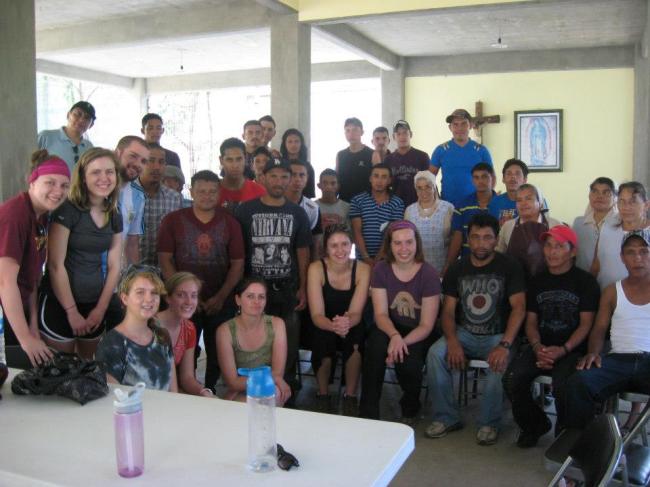A Perilous Journey
Cancun, Playa del Carmen, the Maya Riviera: all popular Mexican spring break destinations flooded by college students every March. So which Mexican destination did a few lucky LCMers choose? That’s right, Palenque, a rural town in the Southeastern state of Chiapas. Our experience could not have been further away from the resort vacations of our collegiate friends. Through the organization called Amextra, students spent a muggy hot week learning about Mexican culture through a variety of meetings with non-profit groups, locals from rural villages, and university students from a local college. In a week of amazing experiences, perhaps the most impressionable was a visit to the Immigrant House in downtown Palenque.
Immigrant houses, like that in Palenque, dot the railways through Mexico, offering refuge for Central American and Mexican immigrants alike on their long journey to the States. As a Midwesterner, I had never really been confronted with immigrant issues, and considered myself to be fairly neutral on policy. Yet on our trip to Chiapas I found myself immersed completely in the issues and people they involve. The nuns who run the house explained to us the tremendous violence towards immigrants and extreme danger each faces on their journey. These men and women ride atop passing freight trains, with the hope of finding a job in the States to make enough money to return and support their families. Only about 3 in 1000 actually make it to the United States, many are caught and sent back to their home country, or killed by organized crime. At this point in the conversation we found ourselves surrounded by every single person who currently inhabited the house. Young men, older men, a young women, first time immigrants, and men who had been in the states for years only to be deported, each with their own heartbreaking stories and dreams.
We were told the story of a man who had lived in Salt Lake City for 13 years and had been deported only 10 days prior to our meeting. The story of another man who left his girlfriend in Arizona after he was deported. The stories of others who only wanted to work for a strong American dollar in order to provide for their families. How many times had I heard that immigrants were in the States, taking jobs from hard working Americans? Yet here I was staring into the faces that so many Americans feared as job competition. And let me tell you, it was hard to keep any validity to this argument.
Hearing these stories I came to a simple yet profound realization. We are all people. All children of God. We all want the best for those we love. We all want to be able support and provide for them. Yet we put up so many barriers, ways to separate and privilege one person over another, when clearly the only difference between me and any of these people was that I was blessed to be born on the side of the dividing line that doesn’t require a life threatening journey to be hired. If only the citizens of our country could experience what we were blessed to experience, perhaps we could change the discrimination and danger that these men and women face. While policy is not always so black and white, the need for change and justice is undeniable. For equality among all of God’s children, whether they be born into a small Midwestern suburb or a village in Honduras, each deserves the opportunity to simply provide for those they love. By bringing back these stories we can put a face to the issue, combating an argument that paints our fellow human beings as competition. We bring these experiences back so the unfair barriers we put up between one another may begin to be broken down and change may come.
Lindsey M.

